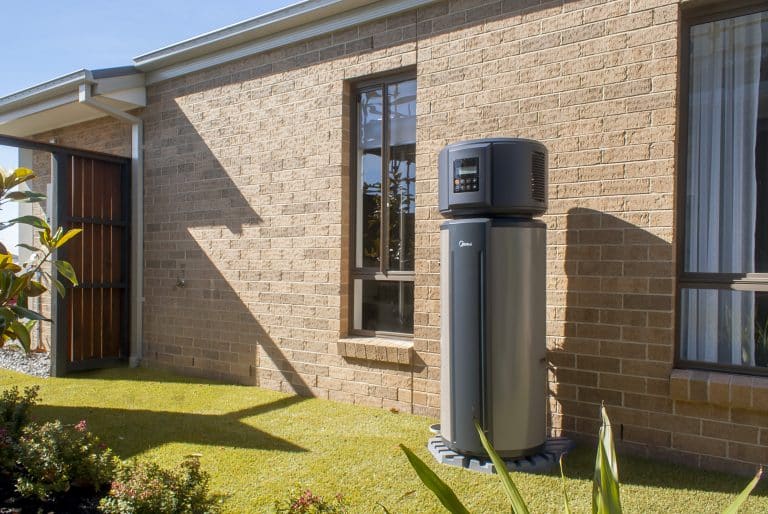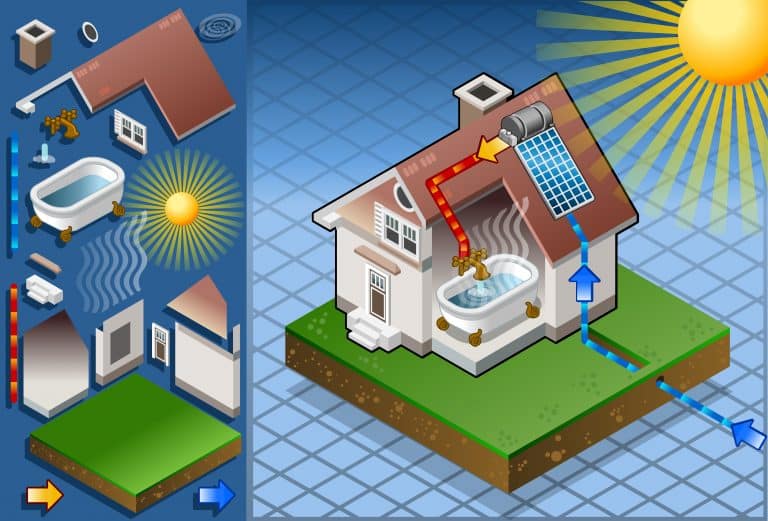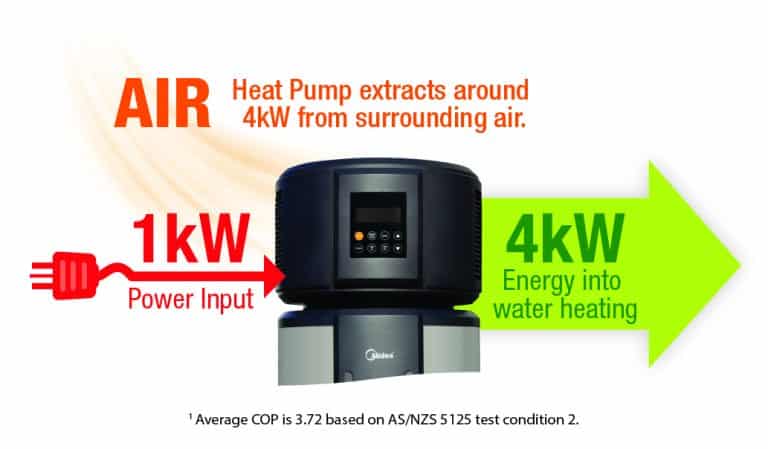
What Is A Heat Pump Hot Water System And How Does It Work?
What Is A Heat Pump Hot Water System And How Does It Work?
You don’t need to be stuck in the chilliest valleys of the East Antarctic Plateau to understand the need for a heat pump hot water system — think of it as a ‘reverse refrigerator’ that uses a heat pump to generate hot water.
The system works by using a refrigerant to absorb heat from the air or ground and then transferring that heat to the water, which is then stored in a tank. Heat pump hot water systems are much more efficient than a traditional hot water heater, as they do not need to generate new heat each time hot water is used.
Instead, they simply transfer existing heat from one source to another. This can save a significant amount of energy over time. Additionally, heat pump systems are often eligible for government rebates.
Let’s talk about Hot Water Heating Systems
We’ve gotten more efficient with hot water heating systems over the years — the end point of which has been the production of water heaters. Typically, water heaters exist in five models: Conventional water heaters, Tankless water heaters, Heat pump water heaters, Solar water heaters, and Condensing water heaters.
Conventional water heaters
These are the most common water heaters because they function anywhere in the world. They are either natural gas powered or electric powered. In a conventional water heater, the water is heated up and stored in an insulated tank of notable size until it is needed. When you use the hot water, the tank fills up with cold water that is heated again.
Tankless water heaters
This has no form of a storage unit for the heated water. Cold water is heated up instantaneously through a super-heated coil when you turn on the faucet/tap. Usually, you never run out of hot water.
Air-source heat pump
This type of heat pump collects heat energy from the outside air and transfers it to the water cylinder tank to heat the water stored in it. They work best in regions without extreme climatic conditions, preferably regions within 4oC to 32oC all year round. However, in recent years, due to technological advancements, air-source heat pumps are being developed to offer space heating for colder regions.
The air-source heat pump can further be classified into split and integrated systems based on design. In split systems, the evaporator, fan, and compressor are all located in different units and are connected to the water storage cylinder by refrigerant piping. While in the integrated system, the heat pump is usually mounted on top of the water storage cylinder along with the evaporator, fan, compressor, and condenser.
Solar water heaters
They are dependent on the sun. This works using energy gotten from the sun by roof-mounted panels to transfer energy through a closed-loop system that connects to the water tank, which then heats your water

Condensing water heaters
Identical to gas-powered conventional water heaters in terms of operation, but uses waste heat that is extracted from flue gas( the waste gas produced by the heating up of gas) and redirects it to a heat exchanger located inside the tank
The heat pump hot water system
The heat pump system is an energy and cost-efficient way of heating the home. This technology has been adapted to produce hot water systems. The heat water pump uses heat from the surroundings to heat water.
The heat is first generated from the environment and then moved through the pump by a circulation process. The movement of heat increases the temperature further. The heat is then applied to water tanks.
Heat pump hot water systems come in a variety of configurations, and they can be classified concerning the energy source of the heat pumps – that could be either air or earth.
HOW AIR-SOURCE HEAT PUMP HOT WATER SYSTEM WORKS
You should consider the air-source heat pump system as a reverse air conditioner that increases the temperature instead of reducing it. This increased temperature is then used for the heating of water.
- It starts by moving external air into the heat pump system by an evaporator fan. The system contains a refrigerant.
- The heat in the air is then absorbed by the refrigerant, which has a boiling point of -26oC
- The refrigerant is then compressed to vapour by a compressor which raises the temperature and pressure.
- The hot vapour then passes through the heat exchanger, which heats the water and also cools the refrigerant
- When the vapour has given off all its heat, it transforms back to its liquid state and cycles back to the evaporator to begin the process all over.

Geothermal Heat Pump
This type of heat pump system uses the relatively constant temperature of the earth as its source of heat energy instead of the outside air temperature. Despite varying temperatures at different times, the temperature a few feet below the earth is mostly constant depending on the latitude and ranges from about 7oC to 21oC. So while an air-source heat pump will find it challenging to perform correctly under extreme freezing conditions, a geothermal heat system would be efficient.
HOW GEOTHERMAL HEAT PUMP WATER SYSTEM WORKS
The geothermal heat system makes use of underground fluid-filled pipes to transfer geothermal heat into buildings during the winter and heat from buildings into the surrounding area during winter.
This system uses a heat exchanger to transfer geothermal heat to a building and, with the use of a desuperheater, can be used for water heating.
- The desuperheater system brings the excess heat from the building system to heat water that is then taken to the hot water storage tank.
Desuperheater systems do not work in summer because the building geothermal system releases heat into its surroundings during this period.
Geothermal heat pump water systems separate from the building are also manufactured due to the efficiency of the geothermal systems.
- In this system, the geothermal heat pumps are equipped just for water heating.
- The geothermal energy is used to heat the refrigerant
- The refrigerant is compressed and transfers heat to the water in the storage tank in the same way as normal air pump water heaters.
Heat pump hot water systems cool their immediate surroundings through the release of cool dehumidified air. They should be installed in well-ventilated areas – no poorly aerated attics for our heat pumps.
Condensation is a by- product of heat pump systems, so the use of a drainage system is required. Alternatively, you could invest in a drainage pump for more efficient disposal.
The heat pump hot water system operates on the principle of transfer of heat energy from the surrounding (air and earth) to the water in the tank to heat it. This makes them two or three times more energy-efficient than conventional electric resistance and gas water heaters.
If you are considering a heat pump hot water system for your home, it is important to consult with a qualified professional to ensure that it is the right choice for you. Factors that will influence your decision include the size of your home, the climate in which you live, and your budget.
NSW Government Hot Water System Rebate
You might be eligible for the NSW Government rebate you can find out by checking your eligibility on our webpage.
A heat pump system can be an excellent investment for your home, but it is important to make sure that it is installed properly and that you understand how it works before making a final decision.
Efficient Energy Group is leading the way in partner homes and businesses in their bid to embrace energy-efficient solutions like the heat pump system. Need assistance? Contact us for a no-obligation consultation on how to install energy-efficient solutions.
